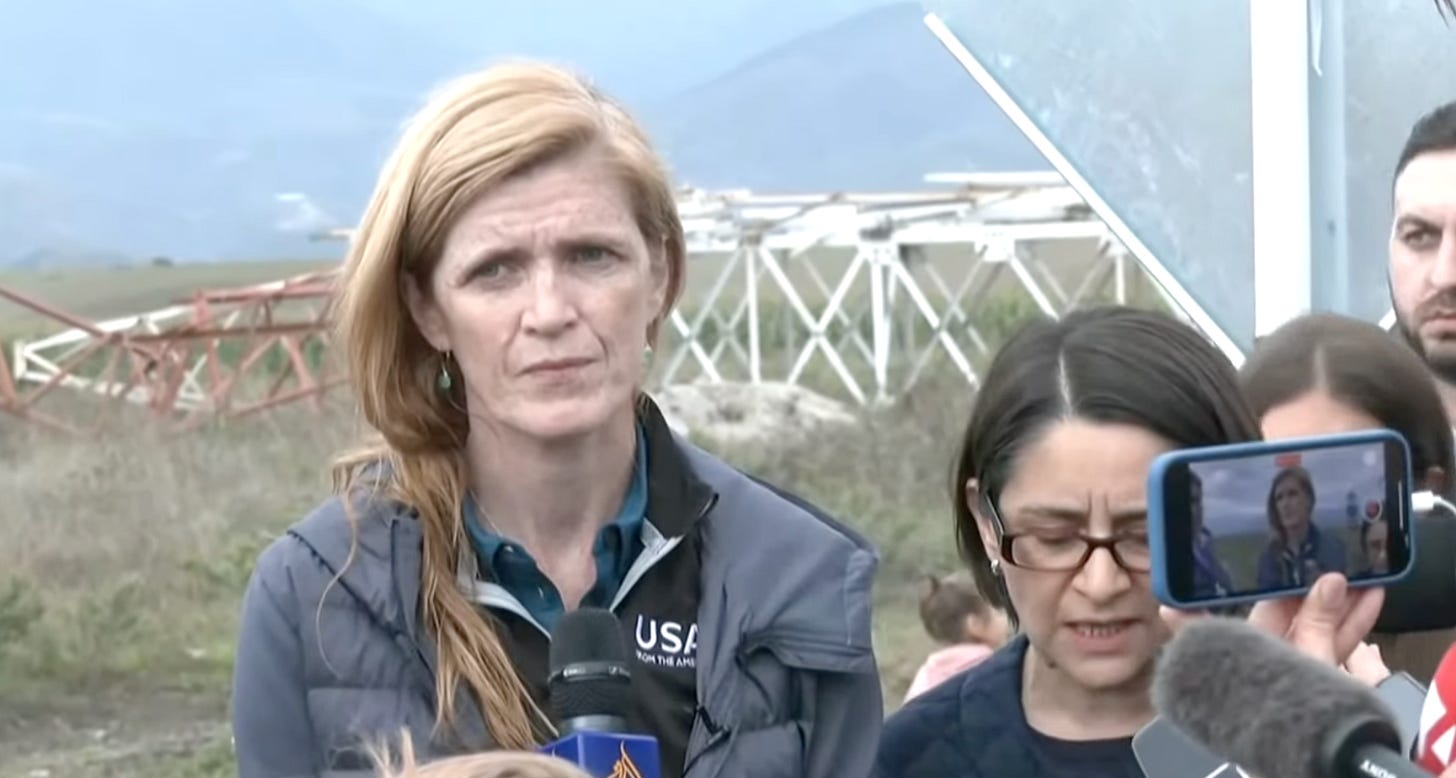How We've Failed Armenia, Again (With Updates)
Geopolitics makes it hard to imagine any real repercussions for Azerbaijan

Samantha Power landed in Yerevan on Monday — the first time a sitting USAID Administrator visited Armenia. As it happened, I was with her the first time she ever visited Armenia. It was 2018, she was a private citizen, and we were both attending a human rights conference and awards ceremony.
Prominent Armenians had established the Aurora Humanitarian Initiative as a living memory to the 1915 Armenian genocide. The initiative bestows an award to an unsung human rights defender, linking the tragedy of the Armenian genocide to the modern day defense of human rights. The year we attended, a Rohingya human rights lawyer Kyaw Hla Aung received the award. Samantha Power served on the award selection committee, which is fitting because her Pulitzer Prize winning book A Problem From Hell: America in the Age of Genocide opens with the story of the Armenian genocide — and the world’s indifference to it.
From Yerevan this week, Samantha Power acknowledged this history. “I know this crisis is particularly painful given how the world has failed to protect Armenians in the past,” she said during a press conference in Yerevan. “This morning, I visited the Armenian Genocide Memorial and laid a wreath at the eternal flame. Not only to honor the memory of those killed and forced from their homes more than a century ago, but to remember our shared duty to stand up for one another's safety, dignity, and cultural heritage.”
The implication was clear: In 1915 humanity failed Armenians living in the Ottoman Empire. Now, in 2023, it is Armenians living in the disputed territory of Nagorno-Karabakh who need immediate protection.
On September 19th, as diplomats from around the world gathered in New York for the United Nations General Assembly, Azerbaijan’s military mounted a swift offensive routing ethnic Armenian forces in Nagorno-Karabakh. Tens of thousands of ethnic Armenians are now fleeing Nagorno-Karabakh to Armenia proper, fearful to remain in their homes. A massive humanitarian crisis is unfolding as people need food, shelter, and medicine. For those who have not fled Nagorno-Karabakh, there is profound fear that the conquering army might do what conquering armies tend to do in these situations.
The tragedy of it all is that we have known for months that this moment may come. All the warning signs were flashing bright red. Yet the international community — diplomats and policy makers in Europe, the United States and around the UN — proved unable to stop it. As a result, ethnic cleansing is underway in Nagorno-Karabakh. At time of writing at least 50,000 ethnic Armenians have fled their homes and the homeland of their ancestors since the Middle Ages. Tens of thousands more are stranded in a miles-long queue at the Armenian border. Among those unable to escape was Reuben Vartanyan, a Nagorno-Karabakh political leader and co-founder of the Aurora Humanitarian Initiative. His wife posted to his Twitter account that he’d been arrested by Azerbaijani forces at the border
What follows for paying subscribers below the fold
A Brief history of the Nagorno-Karabakh conflict
An Update on Samantha Power’s activities in Armenia and Azerbaijan
An explanation of how Russia’s war in Ukraine upended the regional geopolitics and lead to this moment



